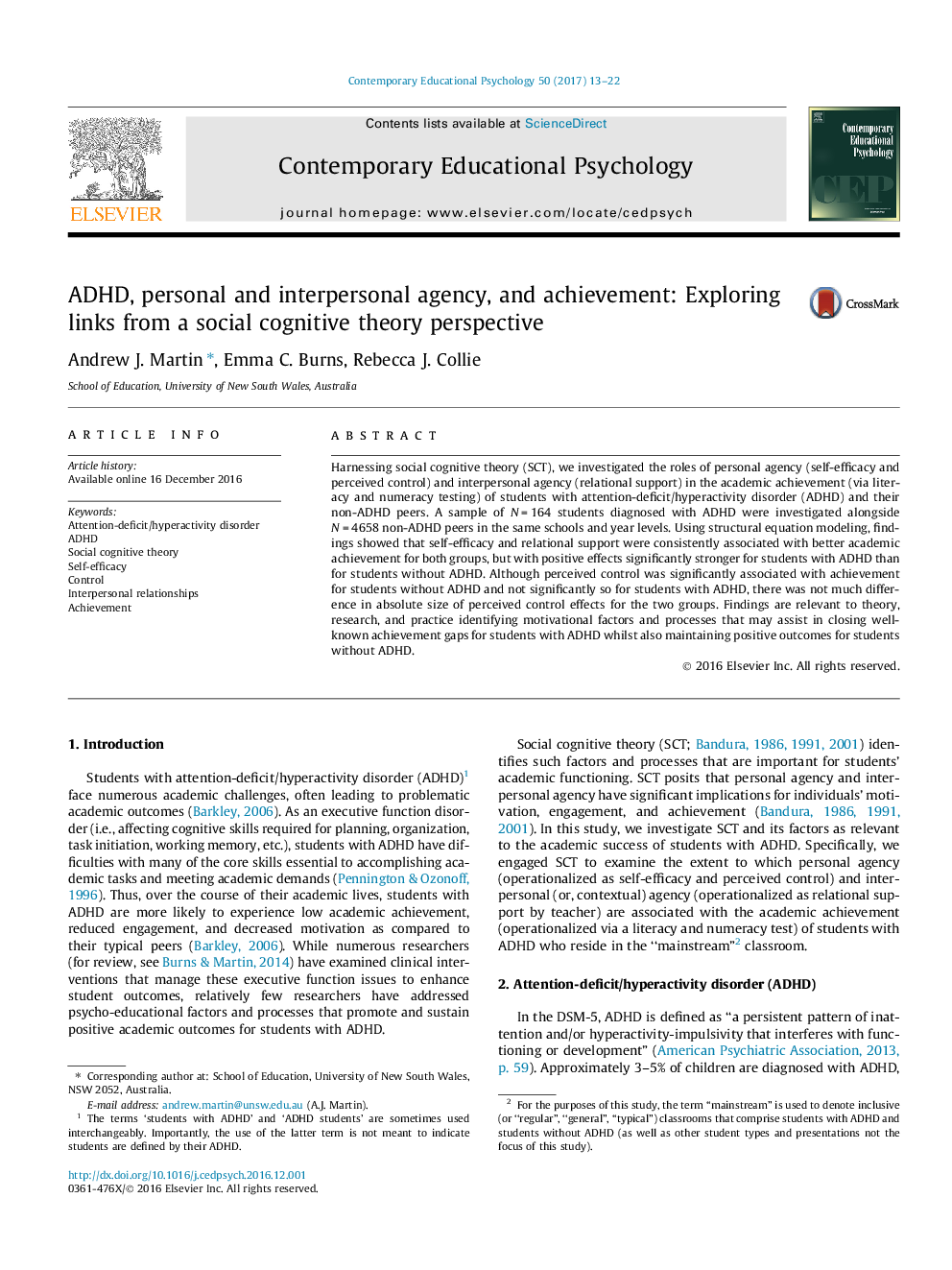| Article ID | Journal | Published Year | Pages | File Type |
|---|---|---|---|---|
| 4937875 | Contemporary Educational Psychology | 2017 | 10 Pages |
â¢ADHD, personal (self-efficacy, control) and interpersonal (teacher support) agency, and achievement were investigated.â¢Self-efficacy and teacher support were associated with higher academic achievement for both groups.â¢Effects for self-efficacy and teacher support were significantly stronger for students with ADHD.â¢Results hold implications for closing well-known achievement gaps for students with ADHD.
Harnessing social cognitive theory (SCT), we investigated the roles of personal agency (self-efficacy and perceived control) and interpersonal agency (relational support) in the academic achievement (via literacy and numeracy testing) of students with attention-deficit/hyperactivity disorder (ADHD) and their non-ADHD peers. A sample of NÂ =Â 164 students diagnosed with ADHD were investigated alongside NÂ =Â 4658 non-ADHD peers in the same schools and year levels. Using structural equation modeling, findings showed that self-efficacy and relational support were consistently associated with better academic achievement for both groups, but with positive effects significantly stronger for students with ADHD than for students without ADHD. Although perceived control was significantly associated with achievement for students without ADHD and not significantly so for students with ADHD, there was not much difference in absolute size of perceived control effects for the two groups. Findings are relevant to theory, research, and practice identifying motivational factors and processes that may assist in closing well-known achievement gaps for students with ADHD whilst also maintaining positive outcomes for students without ADHD.
